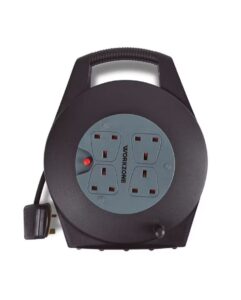THERE isn’t anything enjoyable about a hangover.
From nausea and headaches to grogginess and body aches, the symptoms of overdoing the booze can make the next day a write off.
But when the sun comes out and a long weekend stretches ahead of us, the temptation to overindulge can become too much and many of us drink more than usual.
Although a greasy bacon butty and a strong coffee might help ease our sore heads slightly the next morning, there are actually several things you can do before you start drinking to reduce your chances of being hungover.
So before you pour your first G&T or order pint number one, give these expert tips a try…
1. TUCK INTO BEANS
BEFORE a night on the booze, be sure to eat three balanced meals.
Dr Carrie Ruxton, a dietitian, says this will help to slow digestion and ease the effects of alcohol.
Breakfast, lunch and dinner should contain a combination of protein, fibre and healthy fats, she adds.
In the morning, go for a high-fibre cereal like Weetabix with Greek yoghurt and a glass of fruit juice.
For lunch, try a salad with eggs and avocado, followed by a bean-filled chilli con carne or beans on toast for dinner.
“Antioxidant nutrients can help protect body cells from the ageing effects of alcohol, so eat plenty of fruit, vegetables, beans and pulses,” Dr Ruxton adds.
And remember, eating is definitely not cheating.
Kayla Daniels, registered nutritionist and founder of Kayla’s Nutrition, says: “With food in your stomach, alcohol takes longer to reach your system as your body is focused on digesting the meal.
“In essence, the food acts as a buffer, moderating the rate at which alcohol enters the bloodstream.”
2. BOOST YOUR SLEEP
AS you likely well know, “poor sleep exacerbates hangover symptoms,” Dr Ruxton warns.
So to help reduce the impact of booze, aim to get a solid seven to nine hours of kip the night before.
“Have the perfect slumber by eating a healthy evening meal, turn screens off an hour before bed, hydrate with plenty of herbal tea, fruit juice and water, and take time to wind down by reading a book or listening to a podcast,” says Dr Ruxton.
If you can, avoid alcohol the day before a big night out.
“While Bank Holidays are a great time for socialising, take time to get back on track with sleep, nutrition and hydration by having at least four alcohol-free days a week,” she adds.
3. UPGRADE YOUR WATER
DEHYDRATION can make your hangover worse, so ensuring you’re well hydrated before you go out can lessen the severity of your symptoms.
Georgia Chilton, nutritionist at Fresh Fitness Food, says: “Alcohol is a diuretic, meaning it makes you pee.
“Diuretics dehydrate you by increasing urine production, causing the body to lose more water and electrolytes than it retains.”
Electrolytes, such as sodium, potassium and magnesium, are essential minerals which the body needs to function.
Dr Ruxton adds: “Fluids with electrolytes help your body to absorb water faster and keep you hydrated for longer.”
Limit your caffeine intake on the day you plan to drink alcohol to just one to two coffees
Georgia ChiltonNutritionist
Try an electrolyte supplement such as Free Soul Hydrate (£24 for 30 servings).
Or, Kayla recommends making your own version at home – for as little as 15p.
“Add a pinch of good quality sea salt into our glass of filtered water in the morning, with a squeeze of half a lemon (30p for one from Tesco) for an added vitamin C boost,” she says.
“You could also try coconut water, which is abundant in potassium, and add a little salt to this with some orange juice to make a natural electrolyte drink.”
That said, it’s important to drink enough plain water too.
“Following general guidelines of 30 to 35 ml of water per kilogram of body weight per day is a good idea,” says Georgia.
I tried 8 trendy electrolyte drinks

By Isabel Shaw, Health Reporter
ELECTROLYTES seem to be everywhere these days. But in truth, these minerals have always been in our bodies and the food and drinks we consume.
You might have once only reached for electrolytes – like Dioralyte or Lucozade – to rehydrate after a stomach bug or hangover.
Now, retailers are showcasing newer, shinier versions in sleek packaging across billboards with bold, colourful fonts, marketing them as everything from mind-enhancing to energy-boosting.
They’re even being promoted by influencers and celebs, like Trinny Woodall, Jennifer Anniston and Logan Paul, on social media.
They promise these drinks can help in a multitude of amazing-sounding ways, from enhancing your workouts and even improving your focus.
But can they really do these things, and crucially, how do they taste? I tested eight of the most popular to find out.
I focused on key minerals like sodium, potassium, magnesium, and calcium, so I made sure each drink had at least those.
I also looked for ones that are low in sugar or have no added sugar, and ideally no artificial additives.
I tested how well they mixed with water – no one wants clumps! And I looked for extra vitamins, which are always a nice bonus.
And, of course, the taste. Electrolytes can be salty – I often think they taste sweaty – but it shouldn’t be overwhelming.
So, here’s my review of each, from worst to best.
- MyVitamin sachets (strawberry and cherry flavour) – 10/15
- Humantra sachet (apricot) – 11/15
- Ancient + Brave true hydration sachets – 12/15
- Liquid IV hydration multiplier sachet (tropical punch) – 12/15
- ESN electrolyte sachet (red apple) – 12/15
- High5 Zero tablets (tropical) – 13/15
- Cadence premix can – 13/15
- Holland and Barrett precision energy tablets (lemon and lime) – 14/15
You can read the full article here.
4. LIMIT YOUR COFFEE
IT’S easy to assume caffeine is a good pick-me-up, but it can actually make your hangover worse.
Like alcohol, coffee is a diuretic so it can dehydrate you further.
Georgia says: “Limit your caffeine intake on the day you plan to drink alcohol to just one to two coffees.”
She adds that caffeine also has a half life of anywhere between four to six hours, meaning it can take up to 12 hours to clear from your bloodstream.
If you’re hoping for a good night’s sleep post-drink, keep your caffeine intake to a minimum.
5. PRACTICE SELF-CARE
STRESSED or overwhelmed? This could also intensify your hangover.
“This is because elevated levels of the stress hormone cortisol can already trigger feelings of anxiety, fatigue, irritability, and burnout,” says Dr Ruxton.
“When we drink alcohol, these feelings are often intensified, meaning that if we’re already stressed and dealing with a hangover, those feelings can feel even more overwhelming.”
With this in mind, try to devote some time to winding down before you start drinking.
Put your feet up for half an hour with a magazine, go for a walk, or watch an episode of your favourite TV show.
6. GET MOVING
NOT only can exercise help overcome stress, breaking a sweat before you drink could also reduce the severity of hangovers.
A study published in the journal Addictive Behaviours found that those who engaged in vigorous physical activity, such as running or high intensity interval training (HIIT) sessions, actually had less severe symptoms.
Plus, Kayla adds: “Exercise improves circulation and metabolism and therefore supports your body to process alcohol.”
If you don’t fancy running, opt for a home-workout.
Why not try our 10-minute living room circuit, which could help you burn 150 calories and burn fat fast.
Or even dedicate just two minutes to a cardio blast routine during a TV ad break.
7. EAT FERMENTED FOOD
HOW happy your gut is can also impact how you feel when you wake up after a boozy night.
Kim Plaza, nutritional therapist at Bio-Kult, says: “Where the gut microbiome is concerned, the severity of hangovers depends on whether we regularly drink a lot, or at a more moderate level.
“Frequent, heavy drinking can change the type of bacteria in our gut and mouth, reduce the bugs that manage inflammation, support liver detoxification, break down alcohol, and maintain a strong gut barrier – all important aspects when determining the severity of a hangover.”
Zinc and B vitamins may be especially helpful for breaking down toxins
Kim PlazaNutritional therapist
Support your gut every day, as well as the day before you drink, to reduce your chances of feeling groggy.
Kim suggests eating fermented foods, such as live yoghurt, kimchi, sauerkraut and kefir, which can help support the good bacteria in your gut.
“Having a robust detoxification system through efficient digestion and beneficial microbes might lessen the impact of a hangover,” she adds.
8. TURN TO ZINC AND B VITAMINS
OF course eating well is going to make you feel better – hangover or not.
But certain nutrients could play a bigger role than others, according to Kim.
“Zinc and B vitamins may be especially helpful for breaking down toxins,” she says.
Research by Utrecht University has actually found that people who have higher levels of zinc have less severe hangovers.
Seafood, red meat and chicken are great sources of zinc, while eggs, milk and salmon are high in B vitamins.
You could also try an over-the-counter supplement, though most people should get enough from their diet.
Nutritionists share 8 natural hangover cures that might actually work

By Eliza Loukou, Health Reporter
THE unpleasant punishment for indulging in too much alcohol is caused by a number of factors, including dehydration, lack of sleep, inflammation and bowel irritation.
Lucy Diamond, registered dietitian and clinical director for innovation of weight management provider, Oviva, told Sun Health: “Alcohol is a diuretic that depletes essential nutrients and causes dehydration, leading to those all-too-familiar symptoms: headache, nausea, fatigue, and generally feeling a bit rough.”
But a greasy fry up and painkillers might not be your only options for dulling your symptoms.
Experts say some foods and supplements could help reduce them, making you recover quicker.
From pickle juice and milk thistle to more familiar remedies, here are eight foods, drinks and supplements to help soothe your sore head.
- Milk thistle
- Pickle juice
- Eggs and toast
- Bananas and nuts
- Yoghurt
- Lemon peel
- Ginger or peppermint tea
- Water and coconut water
You can read about the best time to take each one, and exactly why they work, in the full article here.











